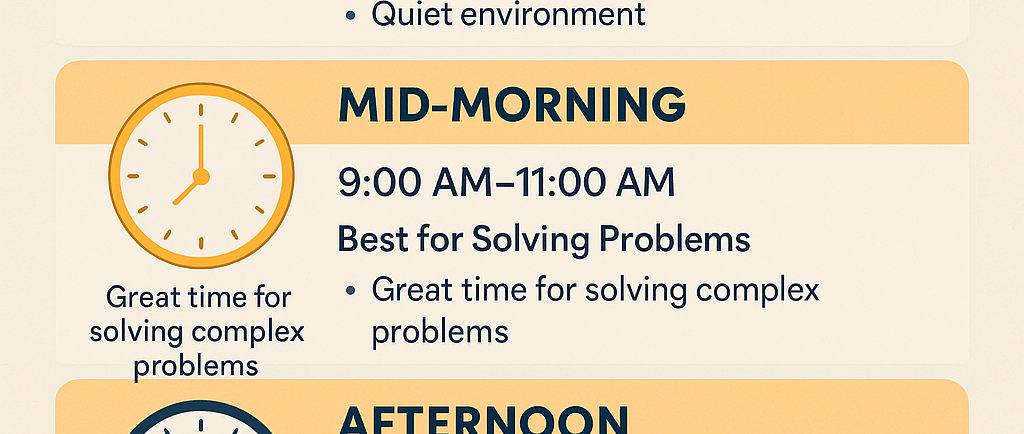Best Time of the Day to Study for Exams: A 500-Word Guide


Success in exams depends not only on how much you study but also when you study. While each student has a unique internal clock and rhythm, choosing the right time to study can significantly improve concentration, memory retention, and performance. Let’s explore which time of day is best for exam preparation and why it matters.
1. Early Morning: The Brain’s Peak Performance Time
Many experts and researchers believe that early morning—between 4:30 AM and 7:00 AM—is the best time to study, especially for subjects that require memorization and critical thinking. After a full night’s sleep, the brain is well-rested, alert, and more capable of absorbing information.
Benefits:
Fewer distractions
High mental clarity
Quiet environment
Good for revising theory-heavy subjects
Students preparing for exams like NEET, JEE, or CBSE often find early morning sessions effective because the mind is fresh and ready to take in new information.
2. Mid-Morning: Best for Solving Problems
From around 9:00 AM to 11:00 AM, your body temperature rises and so does your cognitive function. This is a great time for solving complex problems, practicing numerical questions, or doing mock tests.
Best for:
Solving Physics or Math problems
Timed practice tests
Group discussions or doubt sessions
3. Afternoon: Ideal for Lighter Tasks and Revision
The early afternoon (1:00 PM to 3:00 PM) is when many students feel sleepy or less energetic. Instead of forcing yourself to study difficult topics, you can use this time for:
Activities like:
Reviewing notes
Watching educational videos
Practicing flashcards or quizzes
This is a low-pressure time where repetition-based learning can be effective without overwhelming the mind.
4. Evening: Best for Creative Learning
For students who are night owls or find energy later in the day, the evening hours from 5:00 PM to 8:00 PM can be productive. This time is perfect for revisiting tough concepts with a fresh perspective or studying subjects like Biology, History, or Literature.
Good time for:
Group study
Summarizing what you learned during the day
Solving questions in a relaxed environment
5. Late Night: For Quiet but Risky Learning
Some students prefer studying late at night from 10:00 PM to 1:00 AM. While this time is quiet and peaceful, it is not ideal for everyone. The brain begins to get tired, and sleep-deprivation can reduce memory retention and cause burnout.
Tip: If you study late at night, make sure to get 7–8 hours of sleep to avoid fatigue.
Final Thoughts: Listen to Your Body Clock
There is no “one-size-fits-all” answer. The best time to study depends on your personal energy levels, sleep schedule, and lifestyle. Track your focus levels at different times of the day and build a routine that matches your natural rhythm. Whichever time you choose, consistency, breaks, good sleep, and a healthy diet are the real secrets to exam success.
